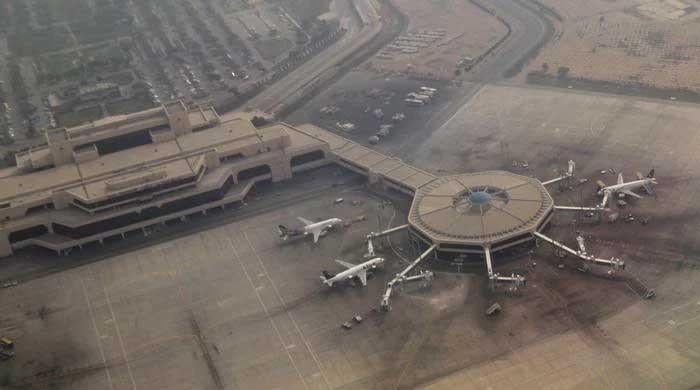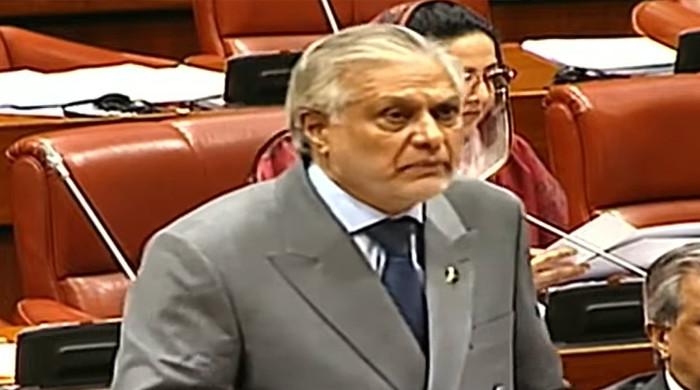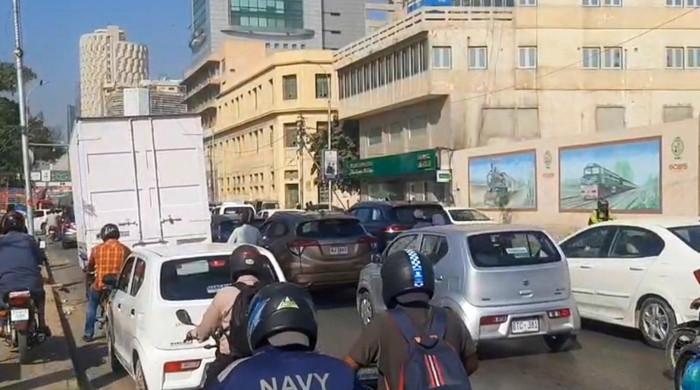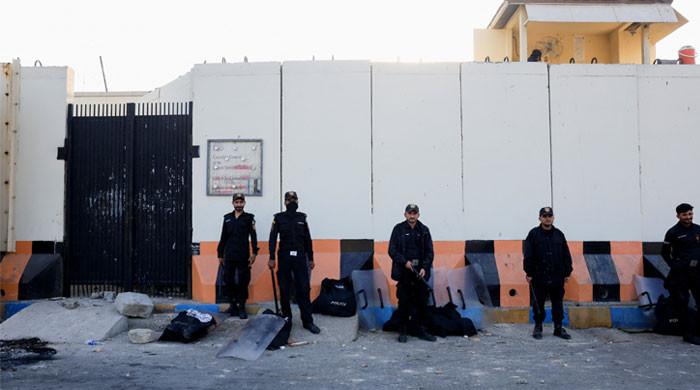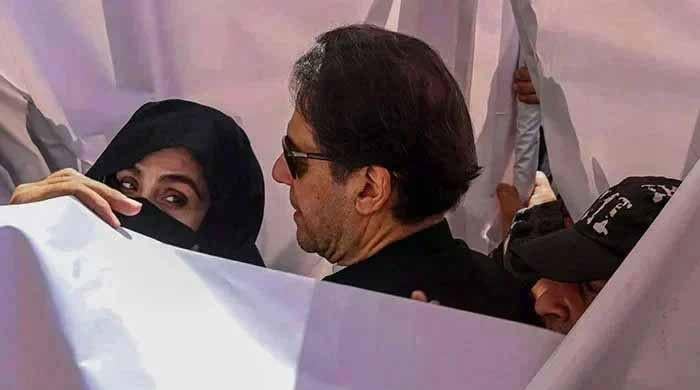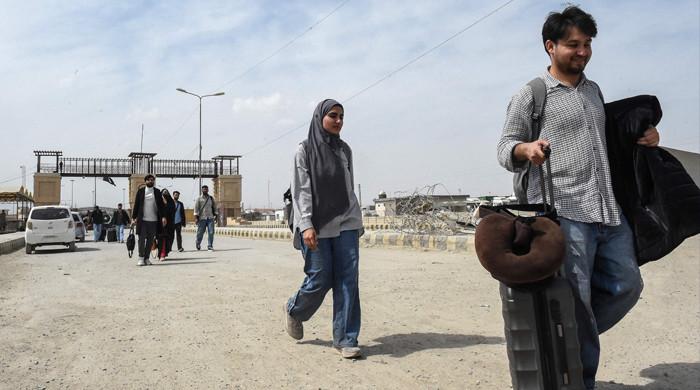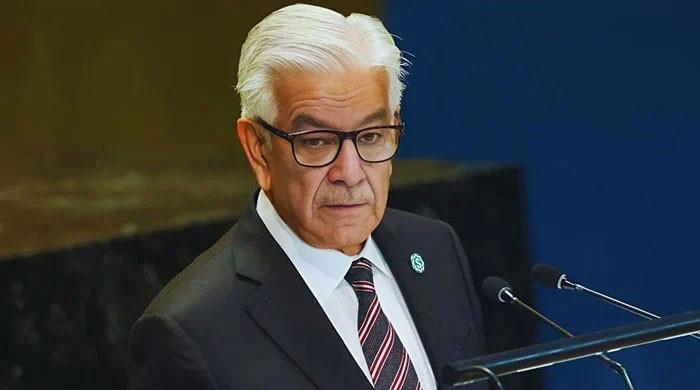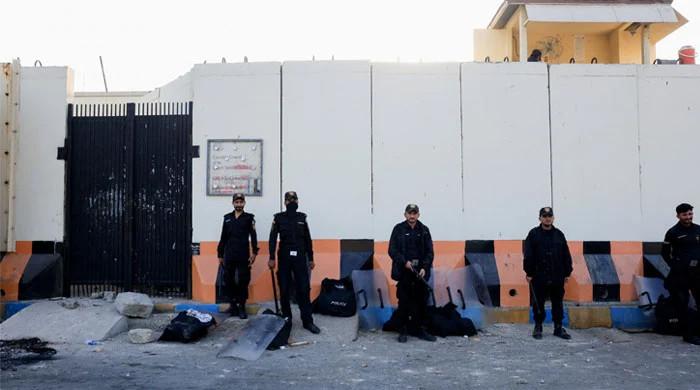Government should hold elections immediately: Nawaz Sharif
KARACHI: Instead of running a dysfunctional government, or trying to get the help of Washington to influence the security establishment in the country, it would be better for the present rulers to...
December 20, 2011
“The government’s credibility has already been damaged and it is in the incumbents’ interests to hold early polls to maintain some credibility and avoid more pressure,” the popular opposition leader said.
Nawaz Sharif expressed his views over a wide range of issues, from the current political situation to the economy, the Balochistan problem, the establishment’s perceived political games, policy towards India and the war on terror.
“It would be better to get a fresh mandate because power is not everything,” he suggested, adding that the nation would heave a sigh of relief if snap polls were called. “There would not have been a demand for early polls if there had been good governance and President Zardari had pursued the understanding reached with us and the agenda of reforms enshrined in the Charter of Democracy,” Nawaz said.
He said if Zardari had implemented the reforms of the CoD, there would have been no need to follow dictation from Washington over the Kerry-Lugar bill. And there would have been no need to seek the help of Washington to “control” the establishment over the memo scandal, he added.
Nawaz said if the government had implemented the reforms, the defence budget and the budget of the intelligence agencies, including the ISI, would have been brought for discussion and approval before parliament. If there were some “classified matters,” a committee could have been formed to debate them but there should have been an audit.
“Frankly speaking, initially there was goodwill for Zardari and great euphoria that the country’s agenda would be taken forward,” the former premier said, adding that Zardari lost goodwill when he refused to restore the judiciary and sought indemnity for the two martial laws of Gen Pervez Musharraf.
The PML-N chief said the PML-N spent three years in the vain hope of reforms and subsequently presented a 10-point agenda to end the present mess. When asked to be specific about his demand for early polls, Nawaz Sharif smilingly said he would demand fresh polls in the winter season as he liked the cold. He recalled that he had also favoured a fresh mandate when his government was restored by the Supreme Court during the 1990s but then President Ghulam Ishaq Khan created hurdles for him.
Sharif said he had also not hesitated to take the “strongest possible action” following the assassination of former governor Sindh Hakim Muhammad Saeed in 1998 and sacked his own provincial government. He said certain elements criticised his resort to army action but he asserted that it was not an undemocratic action.
Asked to what extent the PML-N could go to “enforce” early polls, the party’s central leader Ahsan Iqbal said “there would be no harm in tendering mass resignations if it brings about result-oriented democratic change.” But he added that this would be the last resort.
When Nawaz Sharif was asked whether he would not be creating more fissures in politics by seeking the help of the superior judiciary or creating a crisis to ensure the dissolution of a government led by the country’s biggest political party, the PML-N head said “We have not approached the judiciary (over the memo scandal) as part of any conspiracy.”
He said he had also prepared a petition over the release of Raymond Davis, and purported CIA operative, but it could not be filed due to the subsequent US operation in Abbottabad. The former premier said they could have gone to the court over the Abbottabad incident too if parliament had not passed a resolution, though initially the government, establishment and security agencies were “hesitant” over the contents of the resolution. He regretted that the resolution was not implemented by the government. This attitude prompted the PML-N to approach the judiciary over the memogate issue, Nawaz claimed. “We have not gone to the court to label anyone the culprit; we just want a probe into the matter,” he explained.
Nawaz said if the government was facing pressure from the establishment over the memo and if its purpose was to teach the establishment a lesson, a better option would have been to establish a Truth and Reconciliation Commission, as enshrined in the CoD, to bring dictators before it. This, he said, would have done away with the need to seek the help of Washington.
To a question about the growing popularity of the Pakistan Tehreek-e-Insaf (PTI), the PML-N president said PTI’s newcomers, barring a few, were members of the Musharraf team, lacked their own constituency and were considered close to the establishment.
He admitted that it was not merely the establishment’s game to bring people to the PTI’s massive rally in Lahore but it was playing a “big role” (Acha, Khasa role). Nawaz Sharif said it was not the role of the establishment to form and break parties. “Now times have changed and the country can no longer tolerate such games,” he said, adding that if the security establishment had confined itself to its prescribed professional role, political parties would not have been facing such a situation and the country would have been treading the path of set goals like India.
He said the PML-N would accept whatever decision the Supreme Court took on the memo case, but it would be totally unacceptable for them if the military tried to take advantage of the situation.
Asked how he would “peacefully coexist” with the establishment if he ame to power, Nawaz Sharif said his party was against a particular mindset and would bring in reforms to change it. He said he would take steps to confine the establishment to its professional role. Sharif declared that there might be setbacks in politics, but he would not be deterred from speaking the truth.
About allegations that the IJI was also formed by the security establishment, Nawaz Sharif recalled that the establishment was divided over their support to the IJI. He believed that even those who had the backing of the establishment could lose elections. He also criticised the PTI chief Imran Khan for suggesting that Kashmir be put on the back burner for 10 years.
To a question about perceived flaws in the country’s foreign policy, specially pertaining to the war on terror, Nawaz Sharif said “It was very alarming when a friend of Pakistan like the British prime minister, prior to his visit to India, accused Pakistan of exporting terrorism.”
He suggested that on the terrorism charges, “We are very sensitive to what others say but we should look inwards as well.”
Nawaz Sharif said in the Salala attack case, the US even appeared reluctant to seek an apology over the killing of Pak soldiers, but the PPP-led government was giving an impression of initiating a “new alliance” with Washington. In an apparent reference to the security establishment of the country, Nawaz Sharif said “We expressed our reservations over the Kerry-Lugar bill,” but “they settled the issues.”
When he was asked about his explosive press conference with veteran Baloch leader Ataullah Mengal on Monday and whether the Balochistan problem might have been compounded by the “negligence” of the Zardari regime but the policy was being “dictated by someone else,” Nawaz Sharif said: “We can still bring back the Baloch people to our fold with some effort.” However, he added that the present policies towards Balochistan must not continue and Musharraf’s policy must be ended. He believed that the situation could still be retrieved.
On Pak-India ties, the former premier said he was in favour of better relations between the two countries. He recalled that it was a wrong perception that the establishment was angry when he had invited the then Indian premier to visit Lahore during his tenure. He explained that the military generals were actually “divided” over the issue of presenting a salute to the Indian prime minister. However, he asked who those people were that threw stones on the caravan of the Indian premier in Lahore, and added that it was “a moment of reflection.”
Nawaz said he was in favour of both economic cooperation and talks on the resolution of outstanding disputes side by side with New Delhi.
The opposition leader said his party had a specific economic agenda and when they had implemented it during their tenure, the country’s economic growth was reported at 8pc. The Indian premier, he said, had sought a blueprint of the country’s economic reforms from his finance minister Sartaj Aziz, and former State Bank Governor Ishrat Hussain had also recently praised the reforms during his tenures in government.
At the end of the talk, the PML-N head admitted that the country’s economic situation was grave and a political consensus was needed among all parties to end the present mess in the country.




